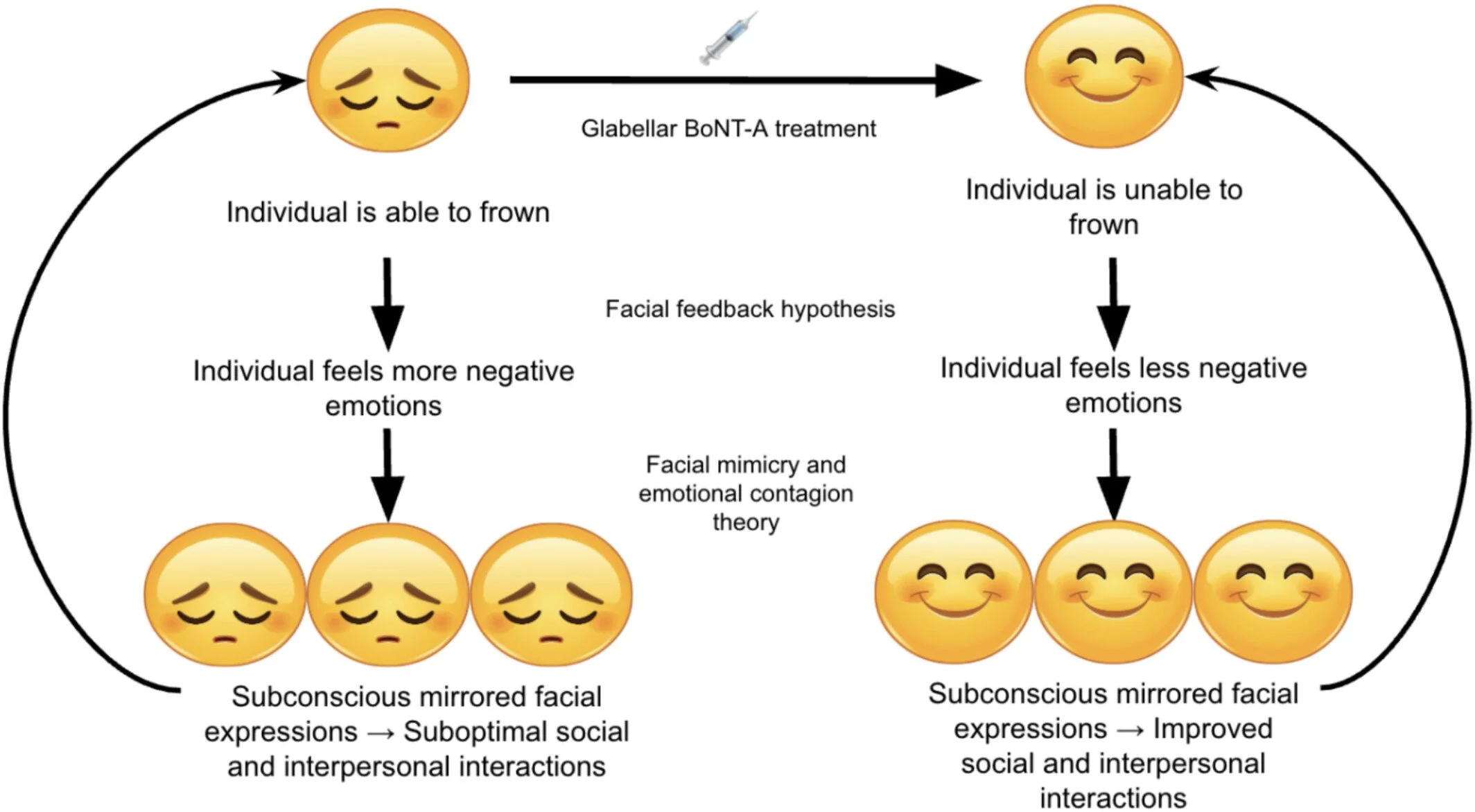Can Botox Improve Mood? The Link Between Smooth Skin and Mental Health
Can Botox Help Lift Your Mood? The Link Between Wrinkle Relaxing and Emotional Wellbeing
At Fresh Aesthetics & Skin, we’ve always believed that how you feel in your skin is just as important as how you look. While anti-wrinkle treatments (aka Botox) are best known for creating a fresher, more youthful appearance, there’s an emerging body of research suggesting they may also support emotional wellbeing.
Could softening a frown line do more than smooth your skin? Could it help lift your mood, too? Let’s explore the fascinating connection between your face and your feelings and how aesthetic treatment can support both.
Your Face Sends Messages To Others and To Yourself
Every facial expression, be it a smile, a frown or a furrowed brow, sends feedback to your brain. This is known as the facial feedback loop.
When we carry chronic tension in our facial muscles (especially the frown area), that physical expression can actually reinforce feelings of stress, anger or low mood. Relaxing those same muscles with Botox has been shown to reduce the emotional intensity of those feelings in some individuals.
This idea has been explored in various clinical studies, including a 2006 pilot study which found that treating the frown muscles in patients with long-term depression led to significant mood improvements in the majority of participants.
More Than Just Cosmetic
Many of our patients say that after treatment, they don’t just look happier, they feel it too. That refreshed expression is more than skin-deep.
Reducing lines, especially in areas like the glabella (between the eyebrows), may help ease emotional strain by interrupting the habitual expression of negative emotions. When your face no longer reflects tension or sadness, your brain may stop reinforcing it so strongly.
A growing body of evidence supports this. A more recent 2021 meta-analysis of clinical trials confirmed that Botox injected into the frown lines can produce measurable improvements in mood, especially in patients with low to moderate depression symptoms.
Why It Matters in Midlife
For women navigating perimenopause, hormonal changes, or simply the normal pressures of life, the emotional load can be heavy. This is often visible through frown lines, tense jaws, and tired expressions.
Aesthetic treatments can help break the cycle by:
Releasing built-up facial tension
Encouraging softer, more open expression
Reinforcing self-esteem and emotional balance
It’s not about changing how you look. It’s about helping you feel more at ease in your skin, emotionally and physically.
Not a Replacement for Mental Health Care
Botox is not a treatment for depression or anxiety, and it should never replace appropriate medical or psychological support. But for some individuals, it may serve as a complementary tool in their overall sense of wellbeing.
The Mind-Skin Connection Is Real
Your skin and your mental health are connected in ways we’re only beginning to fully understand. From the way stress affects your skin barrier, to how restoring your confidence can positively impact your behaviour.
Aesthetic treatments can form part of a wider wellbeing strategy, helping you feel more like yourself again, both inside and out.
Ready to Look — and Feel — Refreshed?
Whether you're looking to soften lines, reduce facial tension, or simply feel more in control of your appearance, our team is here to help.
Book a consultation with us at Fresh Aesthetics for a personalised, medical-led approach that supports not just your skin, but your confidence.
📍 Portadown, Co. Armagh, Northern Ireland | Trusted experts in aesthetics & skin health




